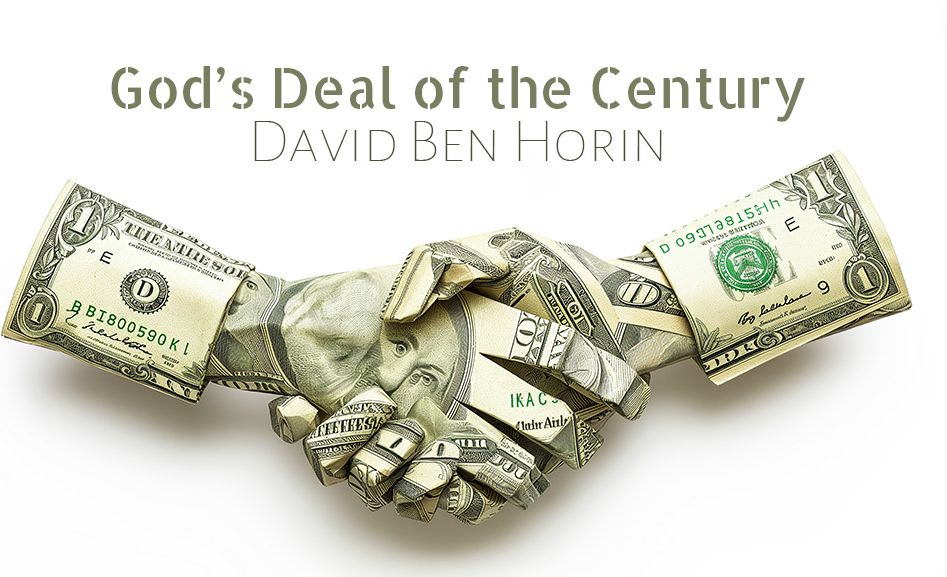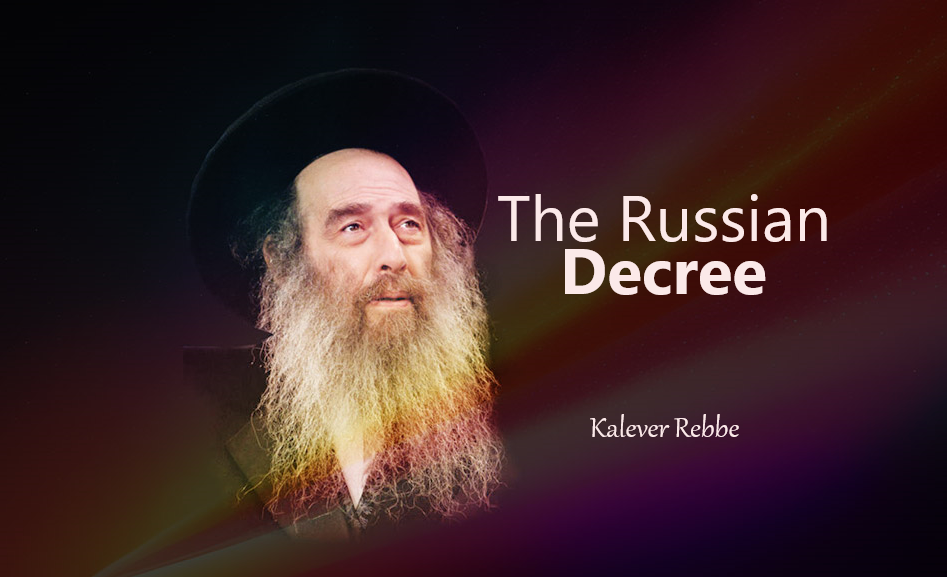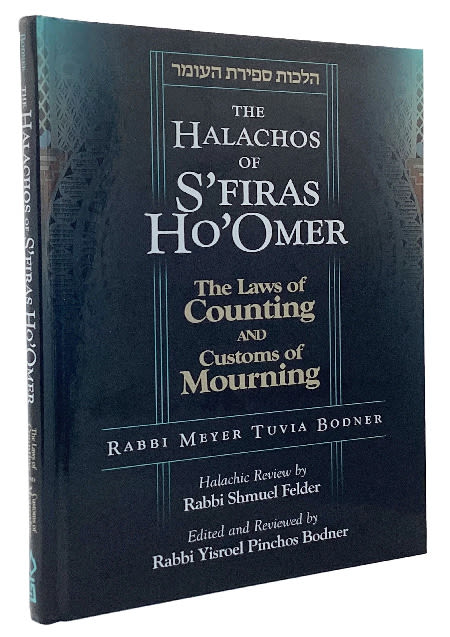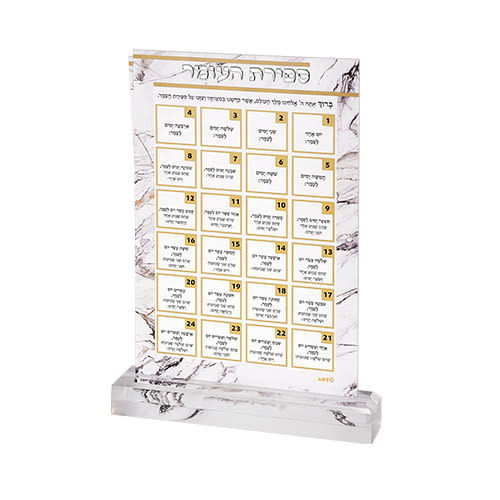
Joie de Vivre – You’ve Got It
Emuna means that Hashem loves us! Often, people who are seemingly baalei emuna get stuck at “It is Hashem’s will”. They don’t move on to the deep emuna that brings about true joyfulness. Our efforts during Sefirat HaOmer can help move us in the right direction.

Empty Words
Sometimes you learn and learn, and think you understand, and then, suddenly, the penny drops and you understand that in truth, you haven’t understood anything. This is exactly what happened to one of my talmidim (students).
This talmid has been close to me for a long time. He learns emuna (faith) and works on himself and his speech is all about emuna, and he considers himself a baal emuna – one who has acquired faith. One day, his wife dropped a bomb on him: “You talk very nicely, but you aren’t really connected to emuna”…
He wanted to understand what she meant, so she explained: “Look at me. I have rose-tinted glasses. Everything is so good in my life, and I see only the good in everything. I see a beautiful world; but you see only black. You take everything very hard; your world is full of darkness; your attitude is so negative… I’m constantly grateful to Hashem, and always happy; but you might say ‘thank You’, and speak words of emuna, but you don’t feel anything. You have no emuna in your heart, and that is why you are always broken and sad.”
He meditated on this and understood that she was simply right. He was missing the most important point of emuna, which is to live the good there is in life.
System Failure
I met this phenomenon in my yeshiva as well. I was approached by an avreich whose goal in life is to serve Hashem. He has everything he needs both materially and spiritually. I don’t want to go into details, but truly he could be someone to envy when it comes to avodat Hashem. But… he is broken; I’ve never seen such a broken person. The discrepancy between all the good he has, and his level of despair is frightening. All that was lacking was that he should say, “And all this is worth nothing to me.” And what pained me most was that he was saying that he thinks Hashem hates him!! How did he reach such a conclusion?! It shocked me.
Here is a Jew who has only reasons to thank Hashem – a perfect life. What exactly happened? I don’t know, but apparently, he encountered some black spot in his life, and that broke him completely. In one moment, all his emuna and everything he had learned and known disappeared in a puff of smoke. Instead of taking all the good and light he had in his life and using it to turn on the spotlight of emuna and aim it at the problem, he took the one problem and allowed it to erase all his happiness and all the good that Hashem did for him!
These two stories demonstrated for me once again that emuna is only one thing: Hashem loves me!
To feel love, to see Hashem’s kindness, to thank, to be happy – all of this is part of the same feeling that Hashem loves me. People who are seemingly baalei emuna, who get stuck at the point of “It is Hashem’s will”, and don’t move on to the deep emuna, the emuna that brings about true joyfulness, are really far away from true emuna.
An Ongoing Journey
And here’s another conclusion, even stronger: Never stop working on your emuna, searching and seeking emuna! Never!
Emuna needs constant work, constant prayers, constant study. Because you always reach new depths in emuna; you constantly discover how relevant emuna is to your life, how it improves your life.
One must work on emuna every day. One must increase one’s emuna every day.
Especially now, during Sefirat HaOmer, in which every day we work and advance, focusing on all seven of the soul’s middot (traits) and rectifying them – that is precisely the time to take upon ourselves the task of acquiring emuna.
The climax of all these seven middot are the two last ones, which are overall middot, in other words, they include everything, as explained in the holy books: middat hayesod and middat hamalchut. They come last because they are the final purpose of a person’s tikkun (rectification).
The Goal: Emuna
The rectification of the midda of Yesod is all about holiness, shmirat habrit, keeping one’s eyes pure, observing family purity. The previous parasha opens with the command “kedoshim tihyu” (You shall be holy) [Vayikra 19:2], and this was said in the presence of the entire Jewish People, because “most of the fundamentals of Torah are dependent on it,” as Rashi says there. And it is Heavenly ordained that we read this parasha during the Sefira, because that is the purpose and our great aspiration as the nation of G-d: “to be a holy nation for Hashem, your G-d.” Kedushah, means, of course, refraining from incestuous relationships.
The tikkun of malchut is the matter of emuna and tefilla, which is the final purpose of all the mitzvot, as it says, “All Your mitzvot are emuna.” [Psalms 119:86] Chazal say that the prophet Habakkuk came and based all the mitzvot on emuna, as he says, “the tzaddik lives on by his faith.” [Habakkuk 2:4] Emuna is the human being’s perfection, as well as his quality of life and joy in living and true freedom. One cannot merit Torah without emuna, and that is the first mitzvah proclaimed to the Jewish People at Mount Sinai: “I am Hashem, your G-d” and “You shall not have…”.
Therefore, this is the last midda in Sefirat HaOmer. Because it is the final purpose of everything. It is the fulfillment of the perfection of middot. And according to the stories above, it is very understandable; because he who has complete emuna, everything is good for him, everything is perfect, and he lives with full awareness that Hashem loves him and always does good things for him.
Joie De Vivre – Soon by You!
The perfection of the brit and the emuna are dependent on one another, as Rabbi Nachman learns from the passuk: “And my brit is faithful to him” [Psalm 89:29] and indeed, the festival of Shavuot combines these two perfections. The receiving of the Torah started with the mitzvah of emuna, as mentioned, and was dependent on the Jewish people’s abstention from forbidden things and on their becoming holy, as it says in the Torah: “and consecrate them today and tomorrow.”[Shemot 19:10] That is why Rabbi Nachman says that Shavuot is tikkun habrit and the tikkun for all those base desires.
The work on rectifying the Yesod and Malchut, the brit and the emuna, is not work that can be laid out in one article. It is a lifework. I have been blessed from Heaven to write quite a few books on these two topics and there are endless sources about both of them. But regarding the belief that Hashem loves you, we have published a booklet in which we clarified the topic called True Happiness; it is highly recommended to use this booklet as a guide now, during the Sefira.
When a Jew wants and aspires and has a purpose to his life, he learns and broadens his knowledge and works on it all year round – and especially when he has challenges and it is between Pesach and Shavuot and he truly lives the days of Sefira, whose entire meaning is advancing day after day – certainly then he harnesses all his time and sets goals and sets aside a long period of time for daily prayer regarding rectifying the foundations of life.
Ascribe Might to G-d
Especially in times of fear and war, when we, unfortunately, see the Jewish People being persecuted by other nations, Rabbi Nachman of Breslev says that when the Jewish People fall into base desires, it brings upon itself the nation for whom this base desire is most relevant. Since the desire for adultery and pgam habrit is common to all seventy nations, the Jewish People are under the control of all of them. There is a rule that the positive aspect of anything is more powerful than the negative – when the Jewish people sanctify themselves and correct the pgam habrit, it enhances their power, and they vanquish all the nations. Of course, whoever is always working on kedusha, and especially during these days, adds strength and might to the Jewish People.
In our weekly parasha we find the section about holidays [Vayikra 23], which includes the mitzvot of Sefirat HaOmer between Pesach and Shavuot. The days of the Sefira are very sublime when it comes to serving Hashem. They are especially suitable for correcting all flaws, tikkun hanefesh, correcting interpersonal relationships, sanctifying and purifying oneself, and meriting full emuna in Hashem yitbarach, so that we will be worthy of receiving the Torah on the festival of Shavuot that is approaching.











Tell us what you think!
Thank you for your comment!
It will be published after approval by the Editor.